Little boy went to bed one night '˜and never spoke again'
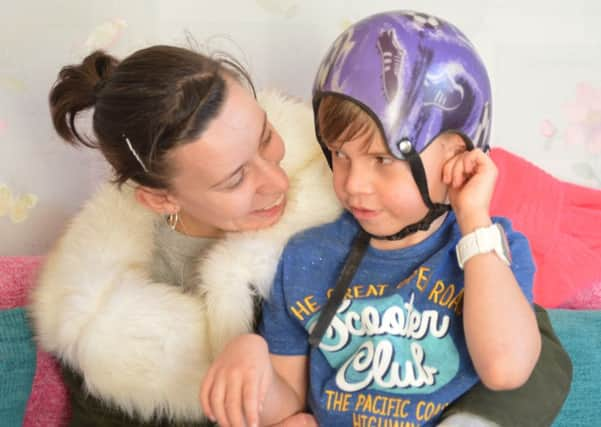

A six-year-old boy sits in a buggy wearing a helmet.
He likes to stare out of the window. It’s warm, and bright. And for little Ashton Betts, these small pleasures in life mean everything.
Ashton has had epilepsy since he was only seven months old – but as a bright, smiley, chatty, playful little boy, he didn’t let it stand in his way.
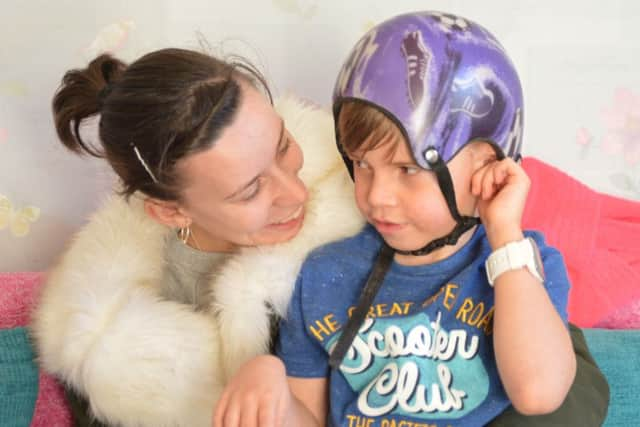

Advertisement
Hide AdAdvertisement
Hide AdThen came a day in November 2014 when Ashton had a severe attack which changed his life forever.
Mum of three Jemma Betts, 26, from Shirebrook said: “He was a normal little boy. He had development issues growing up but you wouldn’t think he had anything wrong with him. He was the happiest child, he used to run around and play. He did the ice bucket challenge.
“He had seizures called ‘tonic-colonics’. They’re mild, with a full body spasm and he would sometimes bang his head. One time he had one on the toilet and slid inside the bowl. It was scary, we had to break down the door. But they were short.
“Then they started getting more frequent, he had test after test after test, and everything came back fine,” Jemma added.
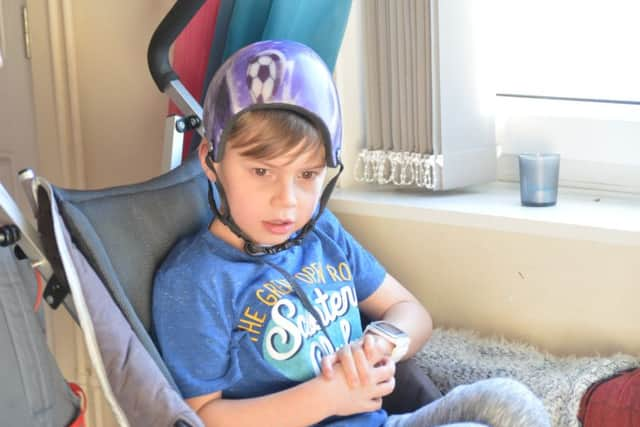

Advertisement
Hide AdAdvertisement
Hide Ad“And then he just went to bed one night and never spoke again.”
When he was four, Ashton had a seizure so severe it starved his brain of oxygen, causing serious brain damage and an autistic regression that reduced his mental age to that of a baby.
Now Ashton can’t talk, he can’t play or do anything for himself. He relies on sensory equipment to entertain him and he has roughly 50 seizures a day, often needing medical care.
His uncle Daniel, 31, said: “We can all remember the first time – he was just sat there and wouldn’t move. It was horrible.
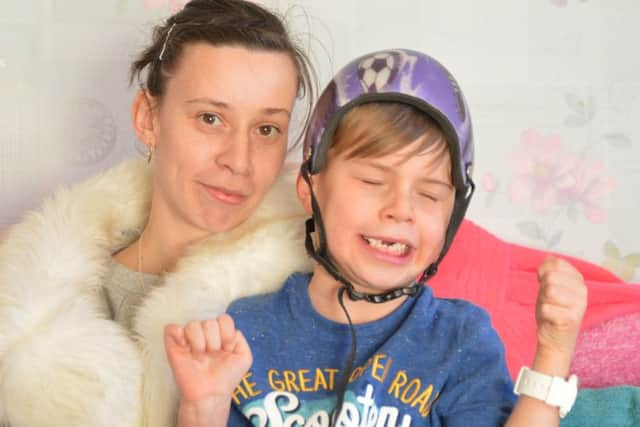

Advertisement
Hide AdAdvertisement
Hide Ad“He can’t express himself so he gets angry. He’s trying to tell you something but he can’t.”
“He still smiles at people. When he has a seizure he doesn’t know who you are, but when he comes round he’ll recognise you.”
And despite doctors prognosis Jemma is still deeply hopeful she’ll get her old Ashton back.
“To me there’s a lot of potential for improvement,” she said. “He spoke before and I have hope he can do it again.
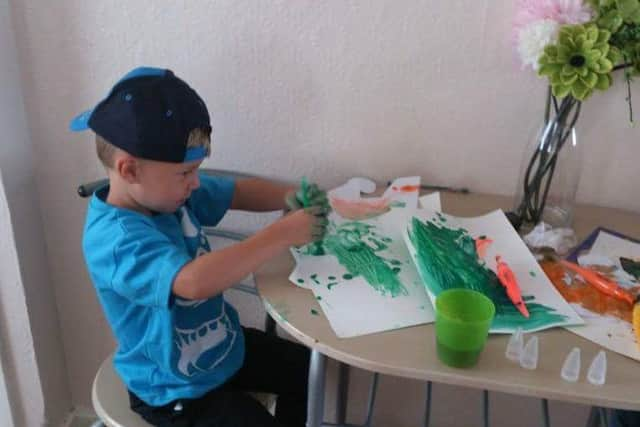

Advertisement
Hide AdAdvertisement
Hide Ad“He does little things that tell me he’s still there. Like, he’ll go into the kitchen and open the cupboard doors. He used to smash around all the pans and he still goes there but he can’t remember, so he just stands there.”
Jemma said he comes out of himself at his special school - Stubbin Wood - where sensory equipment and hydrotherapy are used to stimulate him.
The family want to get sensory equipment to help Ashton’s recovery at home.
“It makes him happy and it keeps him calm - it brings him out of himself,” says Jemma.
Advertisement
Hide AdAdvertisement
Hide AdAnd as the best hope for Ashton’s rehabilitation the family are trying to raise funds to bring more sensory equipment into the house.
Thanks to generous donors, including Ashton’s uncle and aunt, he already has a hi-tech smart watch which can sense when he has a seizure and how strong it is, and send alerts straight to his mum’s phone It will also call an ambulance if he gets dangerous.
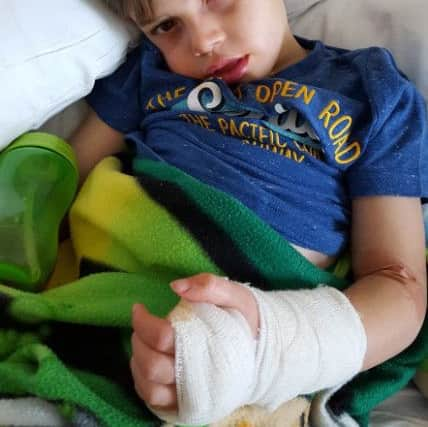

But they need £3,000 to purchase what they need to improve his everyday life.
“It will give him a better chance of doing everything other boys do. It would mean the world to me to raise the funds and help my son with the equipment he needs. The ongoing support of people around him is amazing. Every little bit helps and I appreciate the generosity and support of everyone.”
Advertisement
Hide AdAdvertisement
Hide AdIf you would like to help Ashton’s recovery, please make a donation at www.gofundme.com/74nkc4tz or find collection tins around Shirebrook – at Paula’s Barber, Welcome Fish Bar, Bargain Booze and The Sewing Room.
PANEL Syndrome attacks mental development
Ashton has a rare condition called Lennox-Gastaut syndrome which effects one in every 100,000 children, typically displaying symptoms of sudden ‘drop attacks’, absence seizures, where children go blank for a few seconds, and developmental problems throughout their lives.
Epilepsy Action says: “All children with Lennox-Gastaut syndrome will develop learning difficulties which will be moderate to severe. Some children will have developmental delay or learning difficulties before the seizures start.
“A very small number of children will outgrow their seizures by their teenage years. However, the remaining children will continue to have seizures, often on a daily basis, into adult life. These patients will be dependent on others for all their life.”
PANEL Praise for lifesaving little sister
Advertisement
Hide AdAdvertisement
Hide AdWith a big family around him, Ashton has an amazing support network, and hiw two young sisters understand Ashton is a poorly boy and help their mum every day.
And even his little sister, four-year-old Kia, has amazed the family by how much she supports Ashton.
Jemma said: “At two and a half she was putting him in the recovery position. He had a seizure and she called out to me, and by the time i got there she had got him on his side.
“She’s had a lot to go through a lot, she’s a young carer, really. She’s the most incredible four-year-old.”